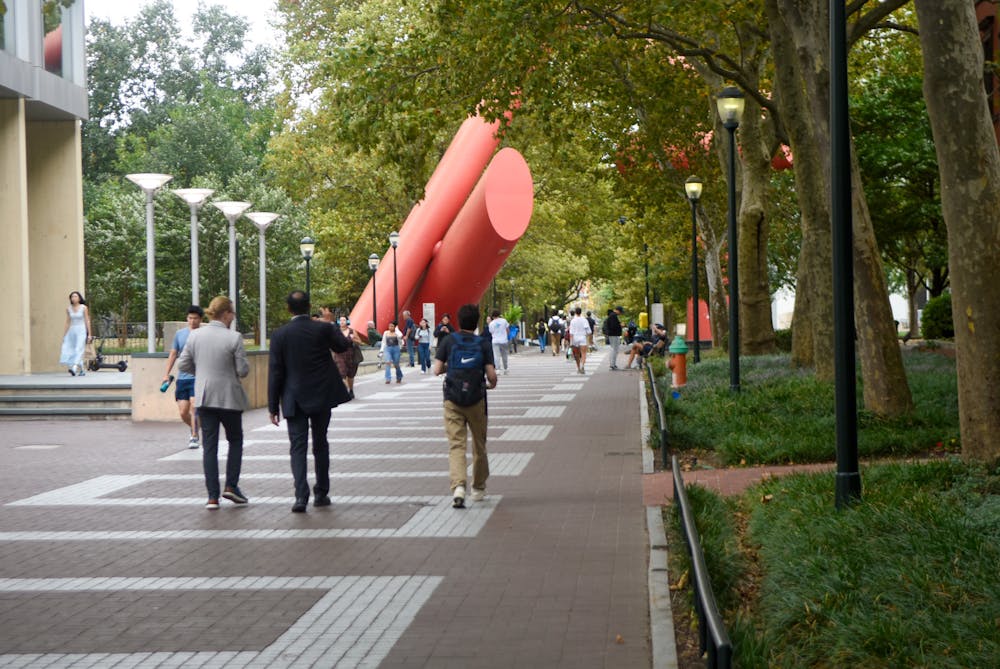
Locust Walk on Sept. 18.
Credit: Maggie GuPennsylvania Gov. Josh Shapiro appointed members to a new higher education board charged with forming a strategy for supporting and improving the state's public and private colleges and universities.
The 21-member board consists of college presidents from all over the Pennsylvania Commonwealth — including the presidents of Temple University and Saint Joseph's University — as well as representatives for faculty, students, legislators, business, and labor. Cynthia Shapira, the chairwoman of Pennsylvania’s State System of Higher Education’s Board of Governors, will serve as the board's chair.
The State Board of Higher Education's goals include making education more accessible and affordable. It will also seek to ensure that college students are learning skills "to fill critical workforce shortages and power our economy for generations to come," according to the Governor's Office press release.
Members of the board represent Pennsylvania institutions such as Lehigh Carbon Community College, Shippensburg University, Penn State, and the University of Pittsburgh, among others. Penn State student Sean Eden was also appointed to the board. Shapiro did not name a Penn affiliate to the board.
Kate Shaw, the deputy secretary and commissioner for the new Postsecondary and Higher Education Board, expressed her excitement for the board and how it will combat the issues facing colleges and universities.
“Pennsylvania faces a large and growing workforce credential crisis, and too many communities lack access to affordable postsecondary credentials that will lead to good-paying jobs," Shaw told The Philadelphia Inquirer. "A bright economic future for the Commonwealth requires colleges and universities to collaborate with each other and work with employers, labor leaders, students, legislators, and members of the administration to solve these problems together.”
The board will develop recommendations for allocating performance-based funding to state-related universities, with a specific focus on graduation rates, retention rates, and job outcomes.
According to the Inquirer, the board also set a mid-2026 deadline to develop procedures to ensure the orderly closures of colleges. This follows the abrupt closure of the University of the Arts in June which closed its doors after giving one's week notice to students and faculty.
The board hopes to create an official platform for Pennsylvania’s higher education institutions to work together to meet the needs of students and the state’s workforce.
“Our colleges and universities have all achieved so much as institutions," Shapira told the Inquirer. "And we now have the opportunity to achieve even more — together — through greater coordination and strategic action."
The Daily Pennsylvanian is an independent, student-run newspaper. Please consider making a donation to support the coverage that shapes the University. Your generosity ensures a future of strong journalism at Penn.
Donate



